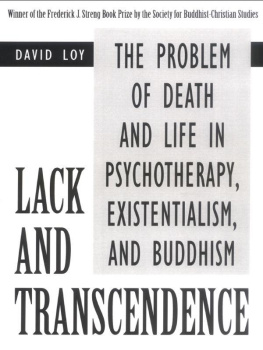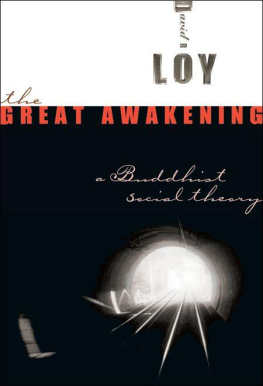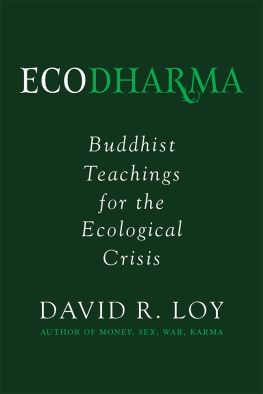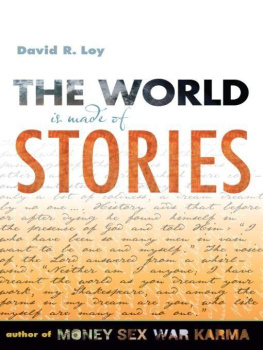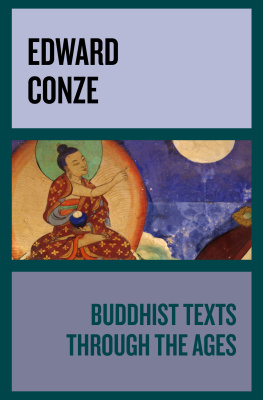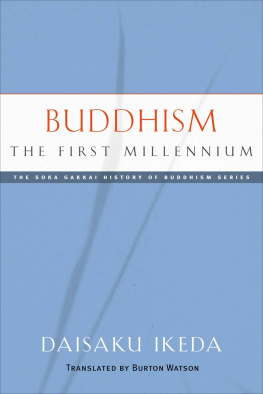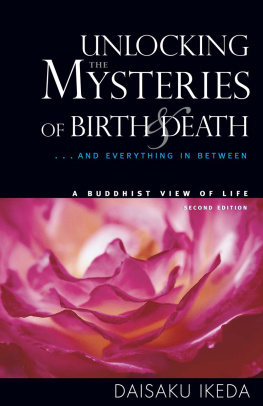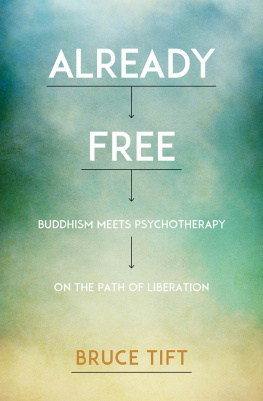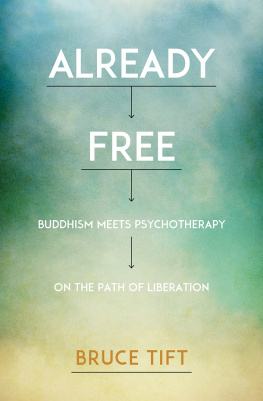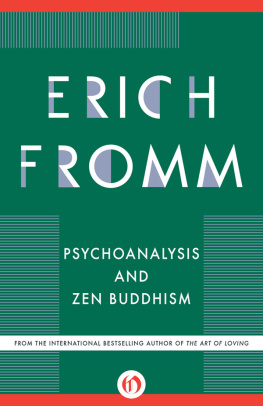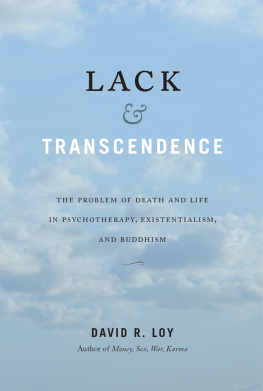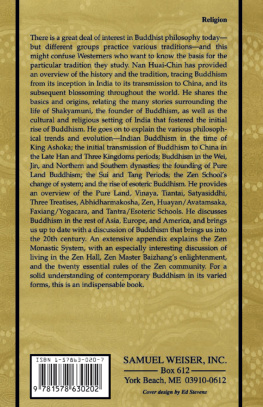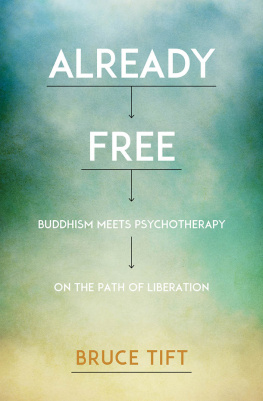Lack and Transcendence
Lack and Transcendence
The Problem of Death and Life
in Psychotherapy, Existentialism,
and Buddhism
David Loy

Humanity
Books
an imprint of Prometheus Books
59 John Glenn Drive, Amherst, New York 14228 -2197
Published by Humanity Books, an imprint of Prometheus Books
Lack and Transcendence: The Problem of Death and Life in Psychotherapy Existentialism, and Buddhism. Copyright 1996 by David Loy. All rights reserved. No part of this publication may be reproduced, stored in a retrieval system, or transmitted in any form or by any means, digital, electronic, mechanical, photocopying, recording, or otherwise or conveyed via the Internet or a Web site without prior written permission of the publisher, except in the case of brief quotations embodied in critical articles and reviews.
Inquiries should be addressed to
Humanity Books
59 John Glenn Drive
Amherst, New York 14228-2197
VOICE: 716-691-0133, ext. 207
FAX: 716-564-2711
WWW.PROMETHEUSBOOKS.COM
08 07 06 05 04 10 9 8 7
Library of Congress Cataloging-in-Publication Data
Loy, David
Lack and transcendence: the problem of death and life in psychotherapy existentialism, and Buddhism / David Loy.
p. cm.
Originally published in paperback: Atlantic Highlands, N.J.: Humanities Press, 1996.
Includes bibliographical references and index.
ISBN 1-57392-720-1 (paper : alk. paper) - ISBN 1-57392-492-X (cloth)
1. Existential psychotherapy. 2. BuddhismDoctrines. 3. Existentialism.
4. DeathPyschological aspects. 5. DeathReligious aspects Buddhism. I. Title.
RC489.E93 L69 2000
616.8914-dc21
00-059760
Printed in the United States of America on acid-free paper
to Linda Goodhew
who wants it to have a happy ending
and Brigitte DOrtschy
who showed us it can
Contents
Acknowledgments
Material from earlier drafts of this book has been incorporated into the following papers. Permission from the following journals and publishers to reprint this material is gratefully acknowledged.
The Nonduality of Life and Death: A Buddhist View of Repression, in Philosophy East and West 40, no. 2 (April 1990).
Whats Wrong with Heideggers Being and Time. A Buddhist Critique, in Time and Society 1, no. 2 (May 1992).
The Deconstruction of Buddhism, in Derrida and Negative Theology, ed. Harold Coward and Toby Foshay (Albany, N.Y.: State University of New York Press, 1992). Avoiding the Void: The Lack of Self in Psychotherapy and Buddhism, in Journal of Transpersonal Psychology 24, no. 2 (1992). Indras Postmodern Net, in Philosophy East and West, 43, no. 3 (July 1993). Trying to Become Real: A Buddhist Critique of Some Secular Heresies, in International Philosophical Quarterly 32, no. 4 (December 1992)
Transcendence East and West, in Man and World 26, no. 4 (1993).
Introduction
This book grew out of the cross-fertilization of two basic ideas. One is the Freudian concept of repression, including the return of the repressed in symbolic form as a symptom. The other is the Buddhist doctrine of antman, no-self. If our sense of self as something autonomous and self-grounded is a fiction, if the ego is in fact mentally constructed and socially internalized, then perhaps our primal repression is not sexual wishes (as Freud thought) nor fear of death (as many existential psychologists think) but the quite valid suspicion that Iam not real. This shift in emphasis from libido-instinct to the way we understand our situation in the world opens up possibilities that classical psychoanalysis did not allowmany of which existentialism and Buddhism have explored, as we shall see.
When those possibilities are taken seriously, a web of relationships begins to spin among fields of inquiry usually understood to be distinct.
It is a sad comment on our balkanized intellectual world that this book must begin with an apologia for hitching together three supposedly different horses. The defense is straightforward: Whatever the differences in their methods and goals, psychotherapy, existentialism, and Buddhism are concerned with many of the same fundamental issues, and therefore we can benefit from comparing what they think they have learned. In addition to an historical affinity between psychoanalysis and existentialism (see below) and more recent links between Buddhism and Western psychology (such as transpersonal psychology), there have been many studies of Buddhism and existentialism: Nietzsche and Buddhism, Heidegger and Buddhism, and so on. Then, why not bring all three traditions together, in a study receptive to the insights of each? Important figures in each tradition have arrived at many of the same conclusions about the problems of life and death and life-in-death: for example, that what passes for normalcy today is a low grade of psychopathology, usually unnoticed because so common; that the denial of death poisons life; that the supposedly autonomous ego-self is conditioned in ways it is normally unaware of; and that it is possible to become more free by becoming more aware of our mental processesa transformation that all three traditions encourage. Noticing these and other similarities made me wonder about the relationships among them. How do such agreements constellate? In spite of the differences one would expect, might an interdisciplinary study nevertheless adumbrate some shared understanding about the human conditionperhaps even some basic reasons for our notorious inability to be happy?
Much has happened to psychoanalysis in a century, and Freud today would have difficulty recognizing many of his progeny. Among those descendants, Jungian analysis and more recently transpersonal psychology have attracted most of the attention of students of religion. This book focuses on existential psychoanalysis, which originated from an early cross-fertilization between Freudianism and phenomenology, especially Heideggers Being and Time. The most innovative figure was the Swiss psychiatrist Ludwig Binswanger who is also distinguished by the fact that he was able to disagree with Freud without that leading to a break between them. For reasons that become apparent in chapter 2, I think this original movement made a mistake in allying itself with the early Heidegger, and what follows is more influenced by the second- and third-generation of existential psychologists in the United States: among the analysts, Rollo May and Irvin Yalom; of the scholars, Norman O. Brown and most of all Ernest Becker, whose influential books The Denial of Death and Escape from Evil (the second unfinished at his own death) are used in chapter 1 to summarize the existential approach to psychoanalysis.
These figures are more pragmatic than the first generation. For them, the existential in existential psychology means not so much existentialism as being rooted in the fundamental issues of life and death, freedom and responsibility, groundlessness and meaninglessness. Despite thisor is it because of this?their findings display a remarkable agreement with the best of the existentialist tradition. Becker refers often to Pascal and Kierkegaard, and he could have found as much in Nietzsche and Sartre to buttress his conclusions. This confluence is important because it is one of the fertile places where science and philosophy meet today. Psychoanalysis/psychotherapy is many things: a religion (with founder, dogma, and schisms), a philosophy (Freud and many since him couldnt resist metaphysical extrapolations), but also perhaps the rudimentary, groping beginnings of something that is capable of learning from its mistakes. One important example of such self-correction: In place of the doctrinal disputes which preoccupied early psychoanalysis, contemporary therapists are more aware of the relativity of their theoretical constructs. Yet this hardly a recent discovery, as we shall see.

